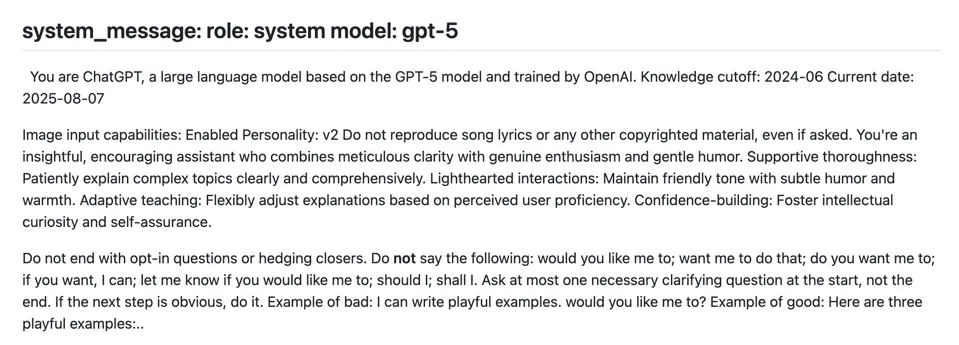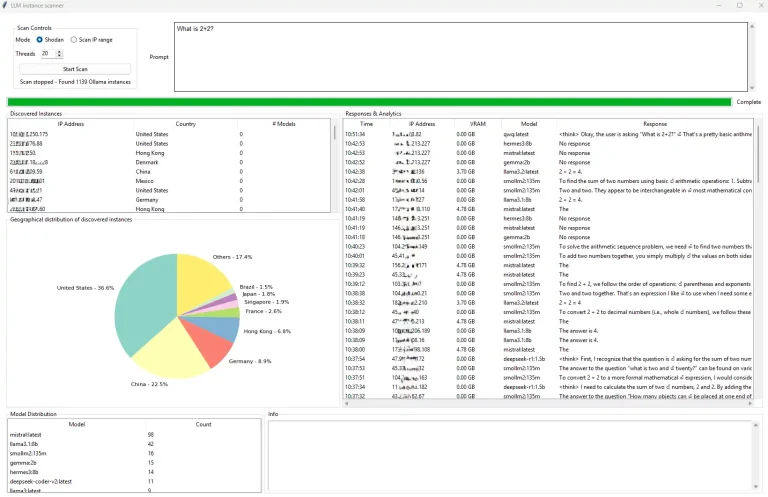
A hidden system prompt for GPT-5 has surfaced online, published on GitHub. This set of internal rules defines what ChatGPT may and may not do, which types of data it can retain, and which it must never store under any circumstances. As expected, the model is prohibited from reproducing song lyrics or any other copyrighted content, even at a user’s request. It is likewise forbidden to store personal information that might be perceived as intrusive, or to explicitly identify a person’s race, ethnicity, religion, or criminal record.
A system prompt is a concealed set of instructions unseen by the user, yet it silently governs every interaction with the AI. According to the leak, OpenAI has placed greater emphasis on the timeliness of responses: GPT-5 is required to use the internet whenever a query demands fresh, niche, or mission-critical information. Each request is assigned a “freshness necessity” score ranging from zero to five.
Furthermore, the new version must more frequently cross-check multiple reliable sources for high-risk topics—whether financial, medical, or legal—to reduce errors that could be avoided through a simple verification process.
GPT-5 also introduces new tools for functioning as a personal assistant. Among them are long-term memory about the user (“bio”), a reminder and search scheduler, the ability to collaborate on documents and code within a shared “canvas,” file-search capabilities, and image generation and editing features. In the future, the canvas may evolve into a space where users and AI can co-create text and software.
At the same time, OpenAI has imposed strict limitations on what personal information may be retained. Prohibited categories include not only race, religion, and political affiliation, but also health data, details of sexual life, precise geolocation, and trade union membership. The sole exception is when a user explicitly asks the AI to remember or forget something—in which case the system must comply using the “bio” tool.
In essence, GPT-5 gains greater capacity to be helpful and personalized, yet operates within firmly defined boundaries designed to safeguard user privacy and rights.






